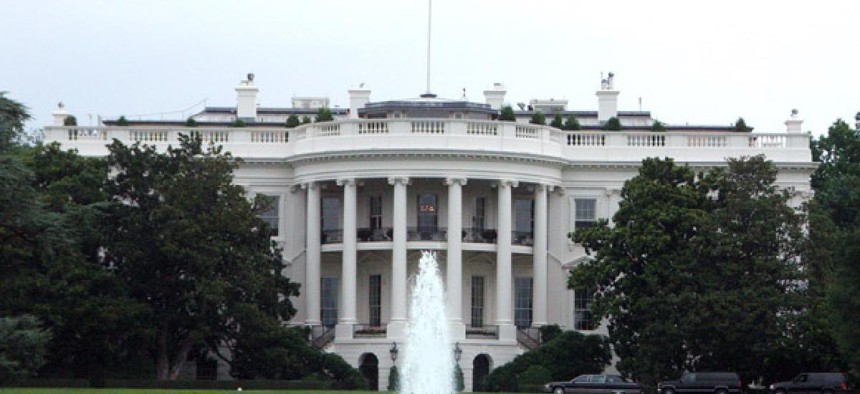
Stock.xchng
Panel suggests tighter timeline for presidential appointments
Commission wants 150 top slots filled by May 1 of new administration.
Congress and the next president should do everything possible to vet, nominate and confirm appointees to the government’s 100 to 150 “most time-sensitive” positions by May 1 of the new term, according to a private commission of luminaries.
In a status report white paper provided to Government Executive on Friday, the 20-member, bipartisan Aspen Institute-Rockefeller Foundation Commission to Reform the Federal Appointments Process said the next presidential administration should have its top 400 most-sensitive positions -- as identified by the president -- filled by Congress’ August recess. The commission urged the House to pass the Presidential Appointment and Efficiency and Streamlining Act, which cleared the Senate in June 2011.
For decades, similar reports have documented how lengthy delays in the Senate confirmation process -- due in large part to politics and legislative tactics -- leave agencies operating at less than full power and discourage qualified individuals from entering public service.
“The White House, the FBI, the Office of Government Ethics and the Senate devote too few people and related resources to expeditiously carry out their responsibilities for vetting people selected for presidential appointments,” the new white paper stated. “The nominees themselves must navigate an archaic, unnecessarily burdensome and time-consuming background information process during their vetting and consideration for confirmation.”
The commissioners -- former lawmakers, White House officials, civic activists and journalists -- warned of the risks of leaving high-level slots vacant during a time of crisis such as the Sept. 11 terrorist attacks or the 2008 financial meltdown.
Recent administrations on average have filled only 35 percent of the 100 most needed leadership spots by May 1 of the new presidential term, the report said. “Even by the August congressional recess -- about 200 days into a new administration -- only 80 percent of the most needed agency management officials and 50 percent of the key national security officials -- were in place,” it stated.
The legislation, sponsored by Sen. Chuck Schumer, D-N.Y., would “exempt from Senate confirmation 169 nonpolicy-making, non-senior, presidentially appointed positions (management officers, public affairs officials and members of various advisory commissions and boards) to begin unclogging the appointments pipeline,” the commissioners noted. “It also authorizes creation of an improved system for obtaining background information from presidential appointees.
In addition, the commission is obtaining commitments from all viable candidates in this year’s presidential election to identify the most sensitive positions and assign the necessary personnel and resources during their campaigns. The commission plans to develop by June an electronic system for collecting and distributing background information on potential appointees, and it is asking the Obama administration to provide “current, accurate job descriptions for each presidentially appointed position, including statutory and management responsibilities.”
The panel has been working on reforms with representatives of the Senate, White House, government agencies such as the FBI and Office of Government Ethics, the U. S. Chamber of Commerce, the U.S. Conference of Mayors, and the nonprofit Partnership for Public Service. Its members are:
- Len Downie, former executive editor of The Washington Post;
- Bob Edgar, president and chief executive officer of Common Cause;
- Mickey Edwards, former member of Congress and director of the Aspen Institute-Rodel Fellowships in Public Leadership;
- Bill Frist, former Senate majority leader;
- Clay Johnson, co-chairman; former director of the Presidential Personnel Office and deputy director of the Office of Management and Budget;
- Paul C. Light, Paulette Goddard Professor of Public Service at New York University;
- Mack McLarty, co-chairman; former White House chief of staff;
- John Podesta, president and CEO of the Center for American Progress;
- Chuck Robb, co-chairman; former U.S. senator;
- Roger Sant, member of the Smithsonian Board of Trustees and chairman emeritus of AES Corp.;
- Melanie Sloan, executive director of Citizens for Responsibility and Ethics
- Margaret Spellings, former secretary of Education;
- Terry Sullivan, Campbell fellow in national affairs at the Hoover Institution, Stanford University and Political Science, University of North Carolina at Chapel Hill;
- Nancy Tate, executive director of the League of Women Voters of the United States;
- William Webster, former director of the FBI and CIA;
- Walter Isaacson, ex officio member; president of the Aspen Institute;
- Judith Rodin, ex officio member; president of The Rockefeller Foundation.







